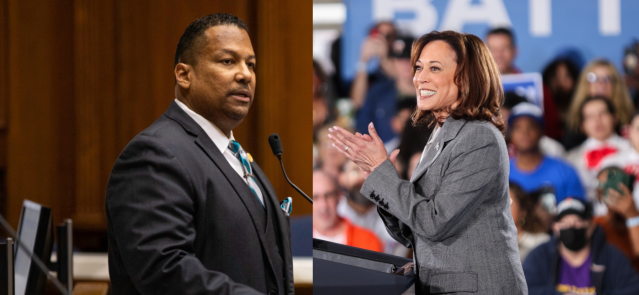Stay ahead of the curve as a political insider with deep policy analysis, daily briefings and policy-shaping tools.
Request a DemoHere’s who was behind the Indiana transgender bill signed by Holcomb
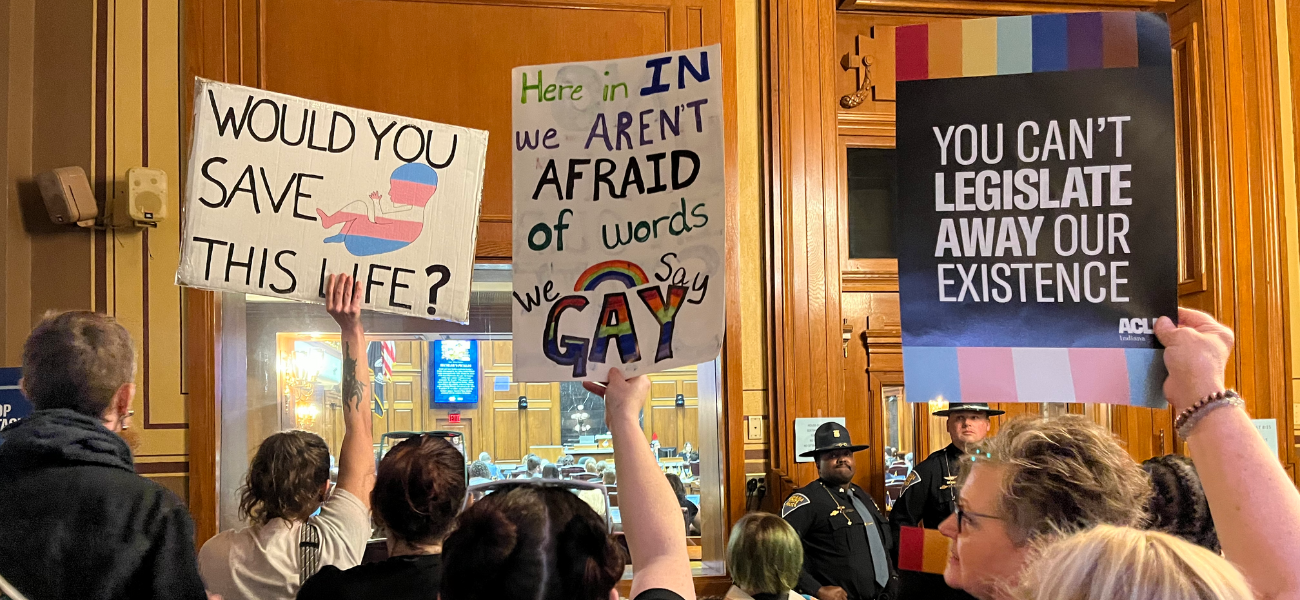
A group of protestors chants outside of the House chamber during debate on Senate Bill 480 on March 21, 2023. (Credit: Kaitlin Lange)
- Gov. Eric Holcomb signed a bill into law banning gender transition-related medical care for minors on Wednesday.
- A representative from the Alliance Defending Freedom, a national legal advocacy group, said Indiana lawmakers asked for its legal guidance on three transgender issue-related bills.
- Of the more than 200 voicemails, emails and notes constituents sent to Holcomb leading up to his signing of the bill, only 10 were supportive of the transgender bills advancing in the Statehouse.
The day before Scott Newgent urged Indiana lawmakers to pass a ban on gender transition medical care for minors, he pitched a similar idea at a Missouri rally. Newgent, a Texan who regrets his gender transition, has already testified in two additional states this year.
National conservative Christian groups and individuals who say they regret their own decisions to transition have traveled the country pushing a historic number of bills focused on those who are transgender. In Indiana, three such bills advanced. One banning gender transition-related medical care for minors — including surgeries, hormones and puberty blockers — was signed into law by Gov. Eric Holcomb on Wednesday.
Perhaps the most influential of the outside forces has been the Alliance Defending Freedom, a Christian legal advocacy group. A representative from the group said Indiana lawmakers consulted it for legal advice on multiple bills this legislative session.
There’s limited polling on the issue in Indiana, so it’s unclear where a majority of Hoosiers stand on the issues.
But the more than 200 voicemails, emails and notes sent to Holcomb from constituents might provide a window into what Hoosiers are thinking. Of those sent between the start of session and March 27, only 10 supported the various transgender-issue bills, according to records obtained by State Affairs.
Laura Merrifield Wilson, associate professor of political science at the University of Indianapolis, said it’s not surprising that outside people and groups would push such legislation, given the increased nationalization of politics. It’s much easier to convince state legislators than Congress to pass these bills.
But, lawmakers and voters should be assessing why national groups are advocating for changes in Indiana, Wilson said.
“The idea of having people come from outside inherently in and of itself is not a bad thing. It’s just peeling back the layer,” Wilson said. “Does it serve the interests of Hoosiers?”
Wilson added that part of the reason so many transgender-issue bills advanced is likely because Republican lawmakers are catering to their base. Polling by and large shows Republicans are more supportive of some of these measures working through statehouses.
There also were in-state Christian conservative groups who supported the flood of bills, including Indiana Family Institute and the American Family Association of Indiana.
Which bills are moving
More than a dozen bills related to transgender issues were filed in Indiana this year, and a record number advanced. Some of them contain similar ideas to bills filed across the country.
Senate Bill 480, for example, bans all gender-affirming surgeries and procedures for minors, including puberty blockers and hormones. Those who have already started using hormones will need to stop by the end of the year.
The law contains concepts similar to legislation filed in more than two dozen other states this year, including West Virginia and Mississippi, where such measures have also been signed into law. In West Virginia, though, a state that this year pursued additional transgender-related legislation banning drag shows, lawmakers built in a unique exception for youth at risk of suicide or self-harm.
Indiana’s law does not contain that exception.
During testimony, some Hoosiers did speak in favor of the legislation. The majority of voices who shared regrets about transitioning, though, came from people who either lived out of state or didn’t say where they lived. Notably, most discussed decisions made as adults — which the law does not address.
Newgent said he decided to testify because he regretted his own decision to transition as an adult — a viewpoint held by just 1% of those who previously sought gender-affirming surgeries — and wanted to protect young people from making the same choice.
He explained the lack of testimony from those living in the state due to embarrassment from those like him who say they were “duped” into transitioning.
“How excited are you to stand in front of a microphone and tell people, ‘Listen I was a total f****** idiot and I fell for this?” Newgent asked.
But there’s no evidence such surgeries are occurring on minors in Indiana.
A representative from Riley Hospital said during a committee hearing that its doctors don’t perform such surgeries on minors. It’s rare across the country, too: There were only 56 genital surgeries among those ages 13-17 with a gender dysphoria diagnosis from 2019 to 2021, according to Reuters.
Plus, opponents of SB 480 said more harm could come from the legislation because LGBTQ+ youth already are more likely to attempt suicide. The American Medical Association and the American Academy of Pediatrics are opposed to restrictions on gender transition-related medical care.
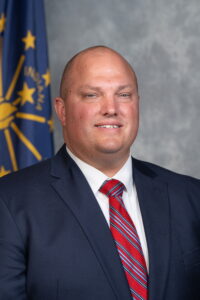
“It seems to me like lawmakers are doing this to appease right-wing supporters that don’t necessarily reflect the views of most Hoosiers,” said Katie Blair, director of advocacy and public policy of the American Civil Liberties Union (ACLU) of Indiana. “The fact that there are so many people coming into Indiana to testify just shows that this is a problem that doesn’t exist and certainly doesn’t exist in Indiana.”
Bill author Sen. Tyler Johnson, R- Leo, said his goal was to protect children against “irreversible, unproven and life-altering procedures.” Republican lawmakers have been working on a bill to limit such care for years, and he said he borrowed language from different places when crafting the legislation.
“That’s how bills get put together,” Johnson, who is an emergency room physician, told State Affairs.
Matt Sharp, senior counsel with Alliance Defending Freedom, said his organization was consulted by Indiana lawmakers on how to take Arkansas’ 2021 law on gender-affirming care and improve it legally for use in Indiana. Johnson said his conversations with the group were “no different than anybody else.”
“We want to be a resource to the state legislators,” said Sharp, whose organization is classified as a hate group by the Southern Poverty Law Center. “States are the laboratories of democracy. It’s where a lot of ideas start then eventually bubble their way up to Congress.”
Holcomb signed the bill into law on Wednesday.
“Permanent gender-changing surgeries with lifelong impacts and medically prescribed preparation for such a transition should occur as an adult, not as a minor,” Holcomb said in a statement. “There has and will continue to be debate within the medical community about the best ways to provide physical and mental health care for adolescents who are struggling with their own gender identity, and it is important that we recognize and understand those struggles are real.”
Within hours, the American Civil Liberties Union of Indiana announced it was suing Indiana over the law.
Another bill mirroring other states
House Bill 1608 also contains similar language to bills filed in other states. That piece of legislation, which as introduced was similar to what opponents call the “don’t say gay” law that passed in Florida last year, would prohibit teachers from providing instruction on human sexuality through third grade.
It also requires teachers to notify parents if their students want to go by a different name, and provides a defense for teachers who don’t want to use a student’s requested pronouns.

Just like SB 480, at least two dozen states have bills that contain similar concepts to HB 1608, and Sharp said he was asked to once again weigh in on the legislation’s legality. His organization previously represented a Brownsburg school teacher who said he was asked to resign because he didn’t want to use pronouns or names inconsistent with students’ assigned sex at birth.
Bill author Rep. Michelle Davis, R-Whiteland, declined to be interviewed for this article but in a statement said the bill stemmed from “parents’ concerns in my district and across the state.”
Testimony on HB 1608 in the Senate’s education committee was notable not because of who testified in support of the bill, but because of who didn’t testify in support of it. While more than 20 people said they opposed it, only a couple of people testified in support.
That bill already passed the House, and could pass out of the Senate as soon as next week. The House, however, would still have to vote on the bill again because changes were made on the Senate side.
The outlier (which picked up Dem votes)
Not every transgender bill in Indiana appears to be tied to a national movement.
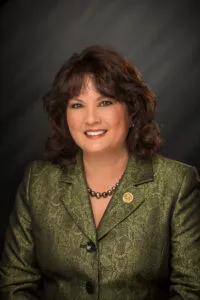
A notable example is House Bill 1569, which would no longer allow people in state prison to receive gender-affirming surgery, including if they wanted to pay for it with their own money. (Other care, such as hormone therapy, would still be permissible.)
Rep. Peggy Mayfield, R-Martinsville, said her motivation for the bill was not necessarily tied to the larger wave of transgender bills emerging in several other states.
The bill would at most apply to just one person in prison at this time, according to testimony provided by the Indiana Department of Correction (DOC) during a Senate committee.
But Mayfield said she carried HB 1569 at the request of Indiana Attorney General Todd Rokita’s office, which is responsible for representing the state prison agency if someone in prison filed a lawsuit for lack of gender-affirming care.
Mayfield noted the DOC has a list of about 100 people who have either been diagnosed with gender dysphoria, are receiving hormone therapy or are otherwise being monitored or considered for some type of accommodation.
“That’s a potential pipeline of tremendous amounts of litigation,” Mayfield told State Affairs.
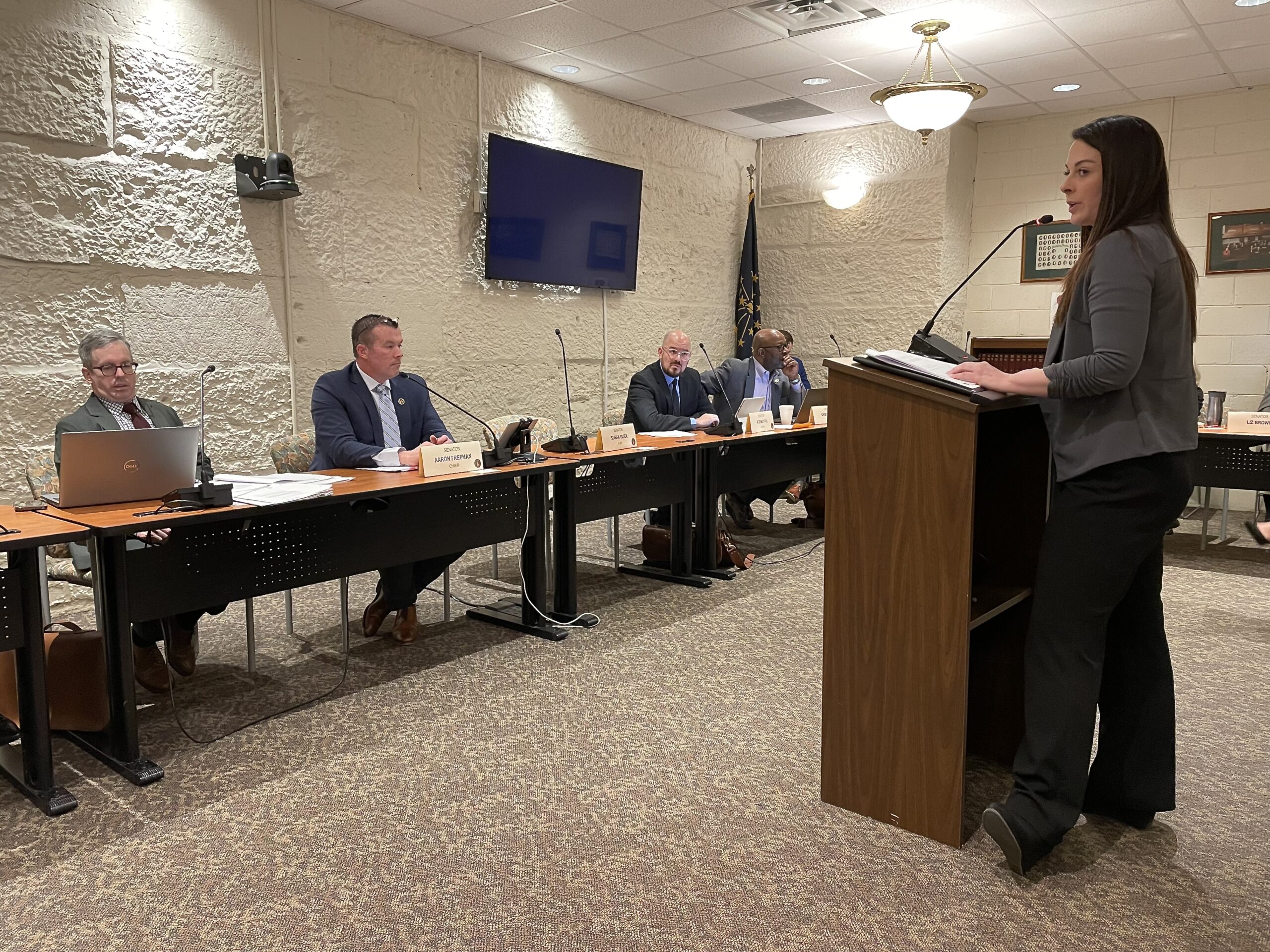
(Credit: Ryan Martin)
The attorney general’s office acknowledged another legal risk, though: Indiana will likely be sued over concerns of the Eighth Amendment right against cruel and unusual punishment.
Zach Stock, legislative counsel with the Indiana Public Defender Council, testified that the bill was unconstitutional. He said it would change the nature of prison sentences, creating a more severe penalty for people who are found by doctors to need medical care.
Still, the bill easily moved through both chambers, even picking up a handful of Democratic votes in the House. Holcomb will now have to decide whether to sign it.
Why there wasn’t more in-state testimony
The amount of supportive testimony a bill receives doesn’t automatically directly line up with the amount of support it would have in the general population.
A recent PBS NewsHour/NPR/Marist poll found that 43% of Americans support laws to criminalize gender-affirming care for minors, while 54% oppose them. In 2022, one poll found that a slim majority of Americans supported what opponents called the “don’t say gay” bill in Florida, while another found the opposite.
Does it matter if people who testify on legislation come from out of state? That depends on who you ask.
“It’s either good or bad policy,” Johnson told State Affairs. “It doesn’t matter where people are speaking on it.”
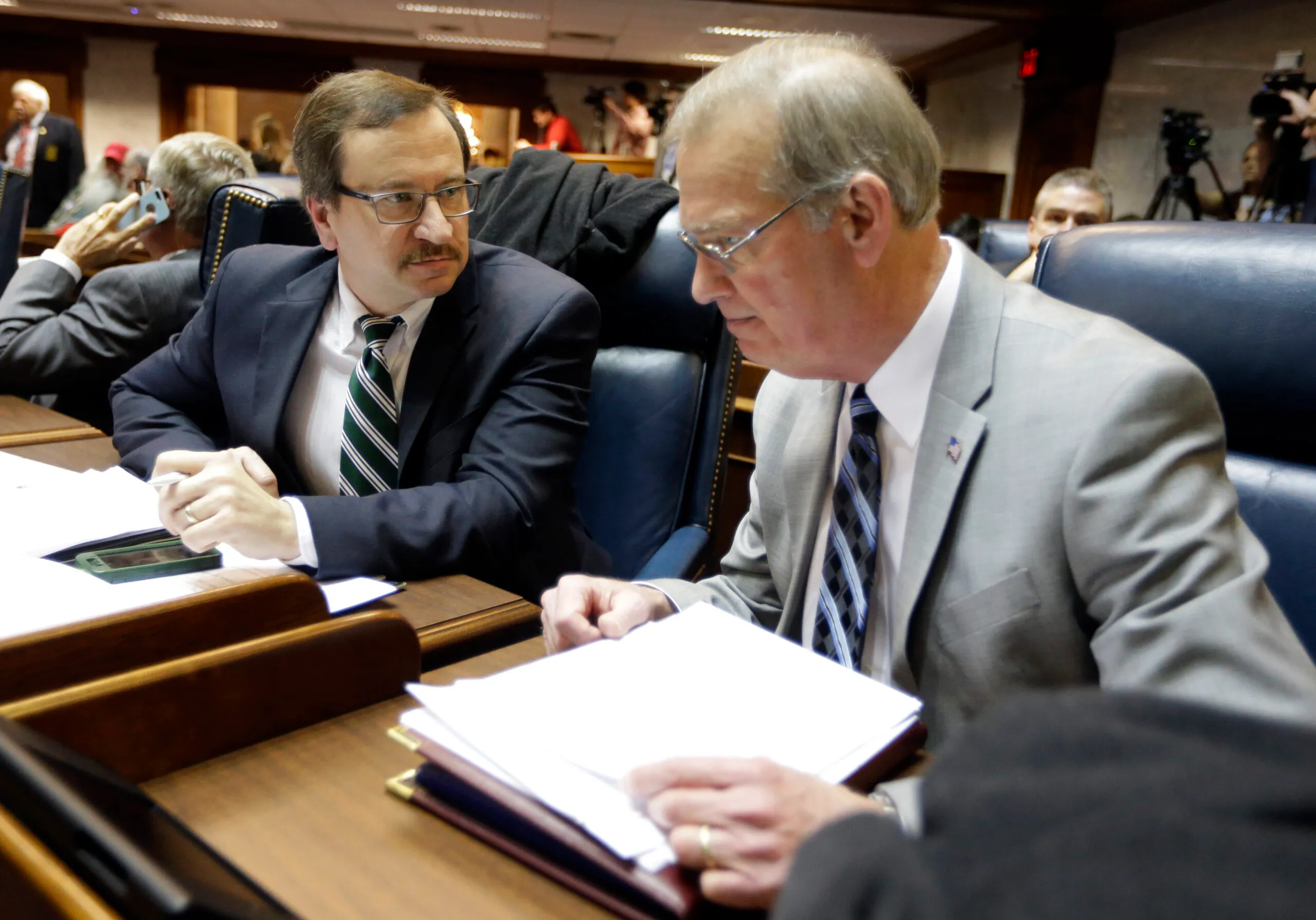
Emma Vosicky, executive director of GenderNexus, however, urged lawmakers to be cautious during testimony on the bill last month.
“With all due respect, you have no understanding of what it means to be transgender, and it’s not your fault because it’s not your experience,” Vosicky said. “What would be your fault is if you seek out stories that conform to what you want to believe, the stories you want to hear.”
Some people, such as Micah Clark, director of the socially conservative American Family Association of Indiana, opted to not testify on SB 480 because he wanted to leave it up to the experts — those who either regretted transitioning or physicians opposed to the practice.
“Sometimes the assumption is that you’ve got 70 Republicans in the House, 40 in the Senate,” Clark said. “People just assume it’ll pass.”
Contact Kaitlin Lange on Twitter @kaitlin_lange or email her at [email protected].
Contact Ryan Martin on Twitter, Facebook, Instagram, LinkedIn, or at [email protected].
Twitter @StateAffairsIN
Facebook @stateaffairsin
Instagram @stateaffairsin
LinkedIn @stateaffairs
Header image: A group of protestors chants outside the Indiana House chamber during a debate on Senate Bill 480 on March 21, 2023, in Indianapolis. (Credit: Kaitlin Lange)
4 things to know about Braun’s property tax proposal
Sen. Mike Braun, the Republican candidate for Indiana’s governor, released a plan for overhauling property taxes Friday morning that would impact millions of Hoosiers, Indiana schools and local governments. “Nothing is more important than ensuring Hoosiers can afford to live in their homes without being overburdened by rising property taxes driven by rapid inflation in …
Bureau of Motor Vehicles looks to add new rules to Indiana’s driving test
The Bureau of Motor Vehicles wants to amend Indiana’s driving skills test, putting “existing practice” into administrative rule. Indiana already fails drivers who speed, disobey traffic signals and don’t wear a seatbelt, among other violations. Yet the BMV is looking to make the state’s driving skills test more stringent. A proposed rule amendment looks to …
In Indianapolis, Harris says she’s fighting for America’s future
Vice President Kamala Harris, the presumptive Democratic presidential nominee, told a gathering of women of color in Indianapolis on Wednesday that she is fighting for America’s future. She contrasted her vision with another — one she said is “focused on the past.” “Across our nation, we are witnessing a full-on assault on hard-fought, hard-won freedoms …
Indiana Black Legislative Caucus endorses Harris, pledges future support
The Indiana Black Legislative Caucus unanimously voted Wednesday to endorse Vice President Kamala Harris’ presidential run and will look at ways to assist her candidacy, the caucus chair, state Rep. Earl Harris Jr., D-East Chicago, told State Affairs. The caucus is made up of 14 members of the Indiana General Assembly, all of whom are …



